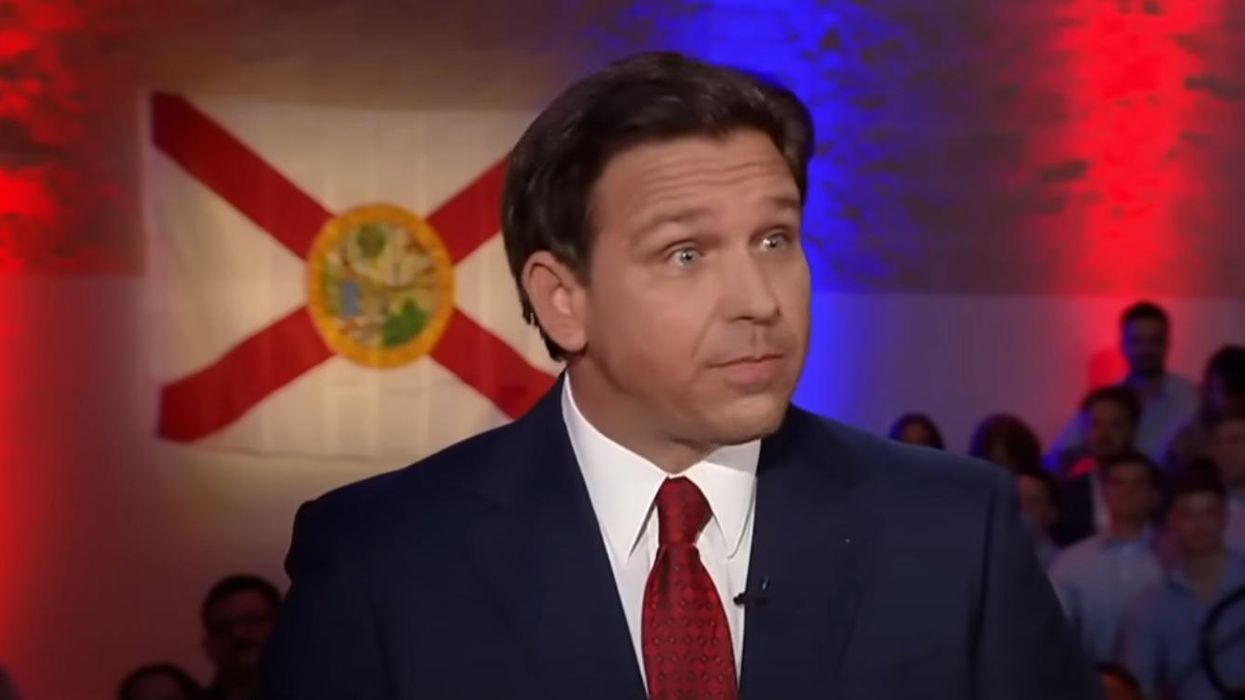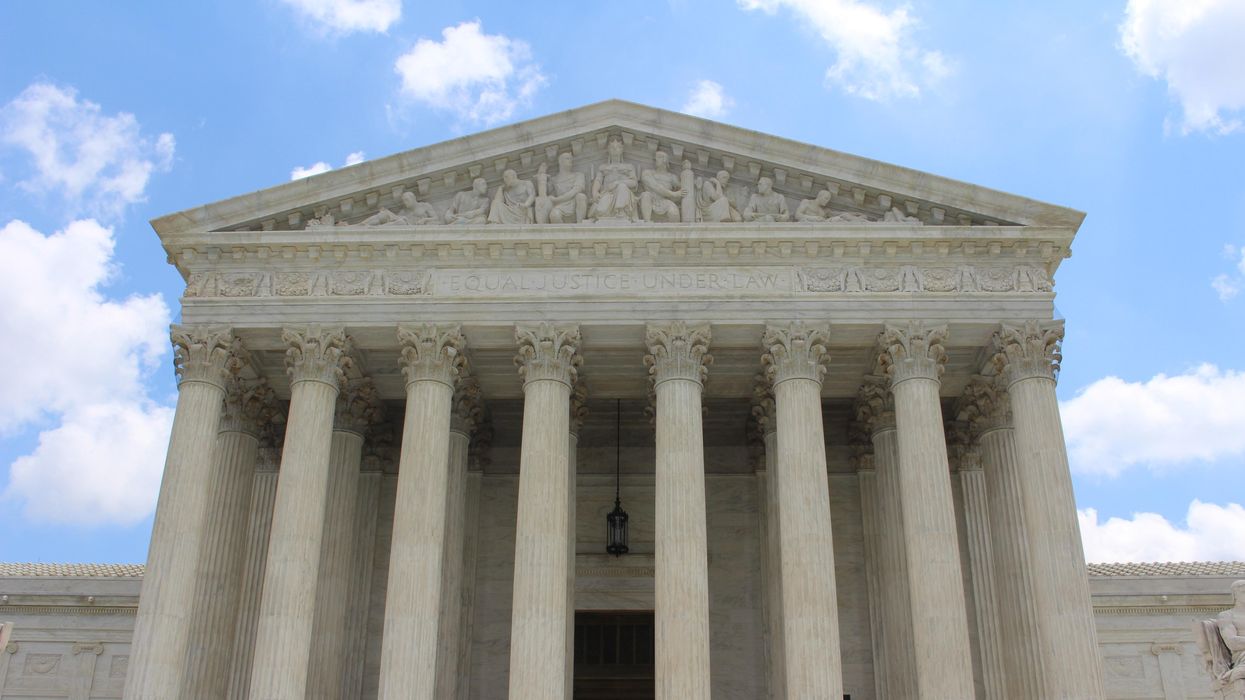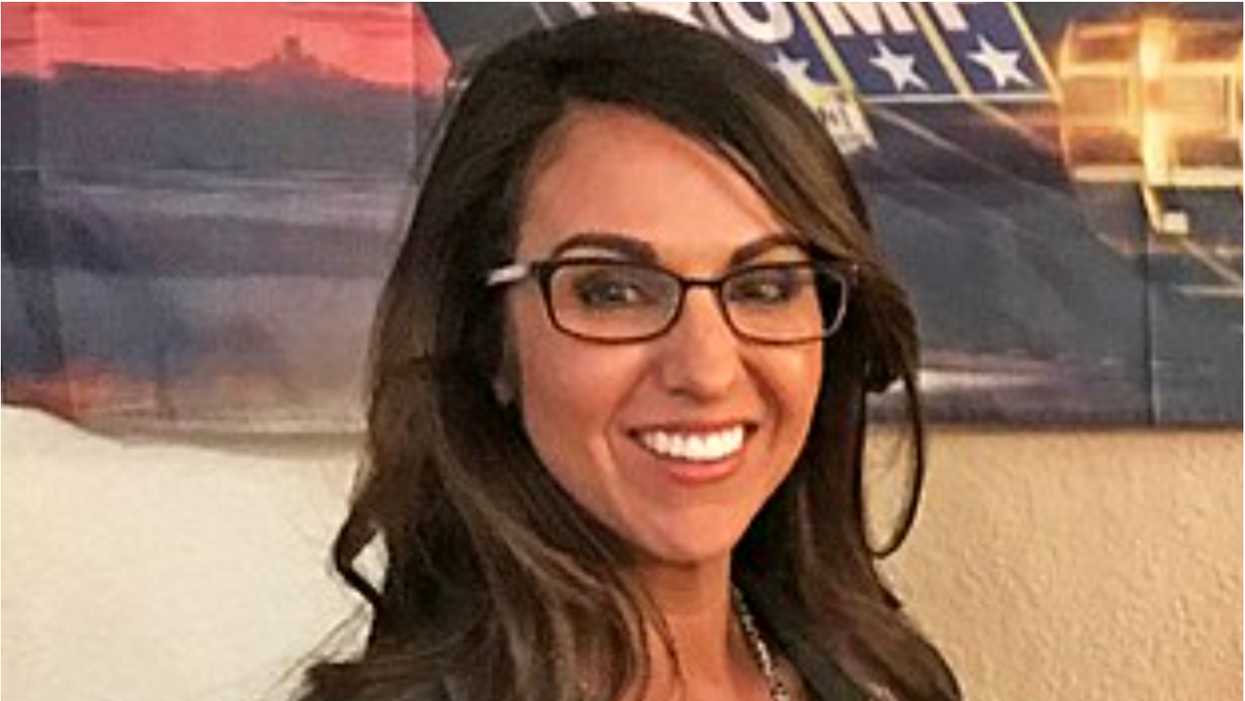Secret DeSantis Bid To Ban Firearms At Party Enrages Gun Lobby
Florida Gov. Ron DeSantis, a high-profile proponent of loosening firearm laws, tried to ban guns at an election event in downtown Tampa last year and blame the city officials for the prohibition, emails obtained by The Washington Post showed.
The Post reported that Republican governor's campaign sought to ban firearms from his re-election party at Tampa Convention Center on November 8 and — in an effort to deceive constituents — requested that the city take responsibility for the ban.
In an October 28 email, the safety and security manager of the convention center, Chase Finch, informed Tampa officials of DeSantis’ request and said that “DeSantis/his campaign will not tell their attendees they are not permitted to carry because of the political optics,” according to the Post.
The strange request — conveyed by the Florida Department of Law Enforcement (FDLE), which a DeSantis appointee leads — was due to “Republicans largely being in support of 2A and all,” Finch explained, referring to the Constitution’s Second Amendment.
“Basically it sounds like they want us to say it’s our policy to disallow firearms within the event space if anyone asks,” Finch added, noting afterward that the campaign had designated “deciding authority” to the FDLE, which didn’t rent the space for the event.
“I’m certainly not signing this without any sort of guidance,” Finch wrote, prompting a reply from Tampa’s administrator of development and economic opportunity, Nicole Travis.
“We are not saying anything about concealed carry. That is the responsibility of the renter. We follow State Statute that permits concealed carry,” Travis responded less than 30 minutes later.
The statute, which went into effect in 1987, granted the state authority to issue licenses to carry concealed weapons. Over 2.6 million licenses have been issued since then, the Post noted.
Travis followed up with another email, published by the Tampa Bay Times, saying, “Just to be clear, we’re not signing this.”
Finch wrote back to the FDLE afterward, informing the state police agency that a no-weapon policy at the event would leave the city in a “legal quagmire.”
“I understand the campaign does not wish to ‘restrict’ 2A for their event because of the optics, but if any guests asks, we will not say it’s TCC’s policy to disallow legal carry,” he said, rejecting the FDLE’s request.
Finch told the Post that firearms were ultimately permitted at the event, but guests had to pass through metal detectors stationed at the venue.
After the Post published its report, FDLE spokeswoman Gretl Plessinger denied the agency ever “request[ed] the venue restrict weapons at the direction of the Governor or campaign.”
“We recognize and value the rights of our citizens to legally bear arms,” Plessinger said, per the Times. “FDLE makes security determinations and based on security threats, FDLE encourages private and public venues to limit weapons when hosting the Governor and First Family at large events.”
DeSantis’ press secretary, Bryan Griffin, sought to distance the governor, who the National Rifle Association gave a 100% rating in November, from potential fallout after the Times’ story, saying, “the governor strongly supports the constitutional right of Americans to bear arms.”
The Democratic governor of California, Gavin Newsom, slammed DeSantis, a potential 2024 presidential candidate, for an “astonishing” display of hypocrisy.
\u201cThe level of hypocrisy here is just astounding. https://t.co/93SukRLSUK\u201d— Gavin Newsom (@Gavin Newsom) 1676057094
An activist for gun violence prevention, Fred Guttenberg, whose daughter Jamie Guttenberg was one of 17 students killed by a gunman in the 2018 parkland school shooting, said DeSantis was "a fraud and he should be treated that way."
“The tough guy act covers for a small, weak, and weird man. His decision to be ok with others being at risk of gun violence but not him and to try and cover that up? WEAK!” Guttenberg tweeted Saturday.
\u201cI have always said that @RonDeSantisFL is a fraud & he should be treated that way. The tough guy act covers for a small, weak, and weird man. His decision to be ok with others being at risk of gun violence but not him and to try and cover that up? WEAK!\nhttps://t.co/nmTM2hcPaL\u201d— Fred Guttenberg (@Fred Guttenberg) 1676117837
Lambasting DeSantis, Shannon Watts, a gun safety activist and founder of the gun control advocacy group Moms Demand Action, said that “the hypocrisy of “the dangers of unregulated guns for thee but not for me” is next level.”
“Florida Gov. Ron DeSantis caters to an extremist, MAGA Republican base by pushing permitless carry while having the privilege to keep those same armed extremists at a distance,” Watts wrote in a tweet.
\u201cThe hypocrisy of \u201cthe dangers of unregulated guns for thee but not for me\u201d is next level. Florida Gov. Ron DeSantis caters to an extremist, MAGA Republican base by pushing permitless carry while having the privilege to keep those same armed extremists at a distance.\u201d— Shannon Watts (@Shannon Watts) 1676052076
The Post noted that DeSantis had a taste for events requiring guests to pass through metal detectors, a habit that had not escaped the notice of gun owners. The chairman of Alachua County’s GOP, Tim Marden, told the Post he had passed on attending a DeSantis fundraiser in October because the governor had insisted on installing metal detectors at the event.
“In my thinking, it was a little hypocritical to have this measure in place for law-abiding citizens at a time when a lot of folks in the gun community will condemn a Democratic politician for having a security force,” Marden said.
Republican Liberty Caucus chair Bob White told the Times that DeSantis’ masquerading could cost him the support of gun lovers across the country and, thus, his shot at becoming the GOP’s 2024 presidential nominee.
“I think it’s entirely possible, if not even likely, that he will lose support within the Second Amendment community if he doesn’t take a really bold position right now,” White said.




